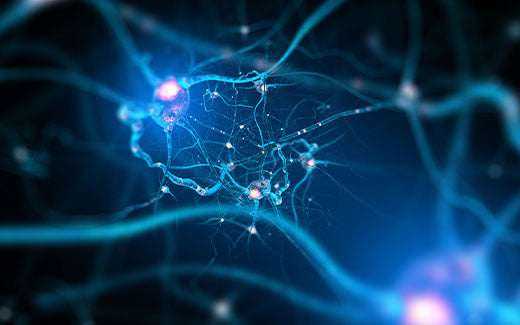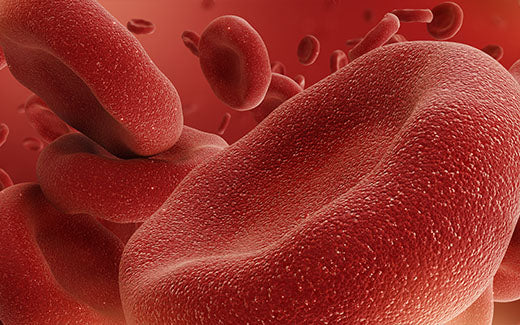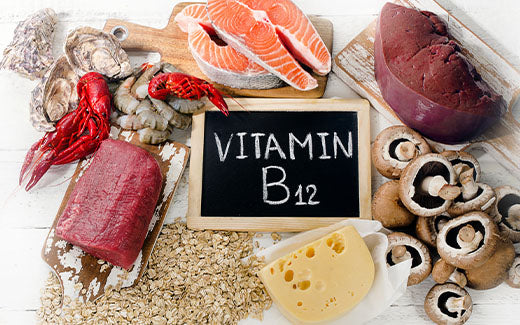Education hub
Browse the articles and blogs written by our professional partners. From science-backed articles to simple lifestyle tips, everything we share is here to help you look after your health and better understand the science behind wellness.
Discover our easy guides
Everything you need to know about each nutrient, compiled into an easy guide by our Head of Nutrition, Sarah Carolides
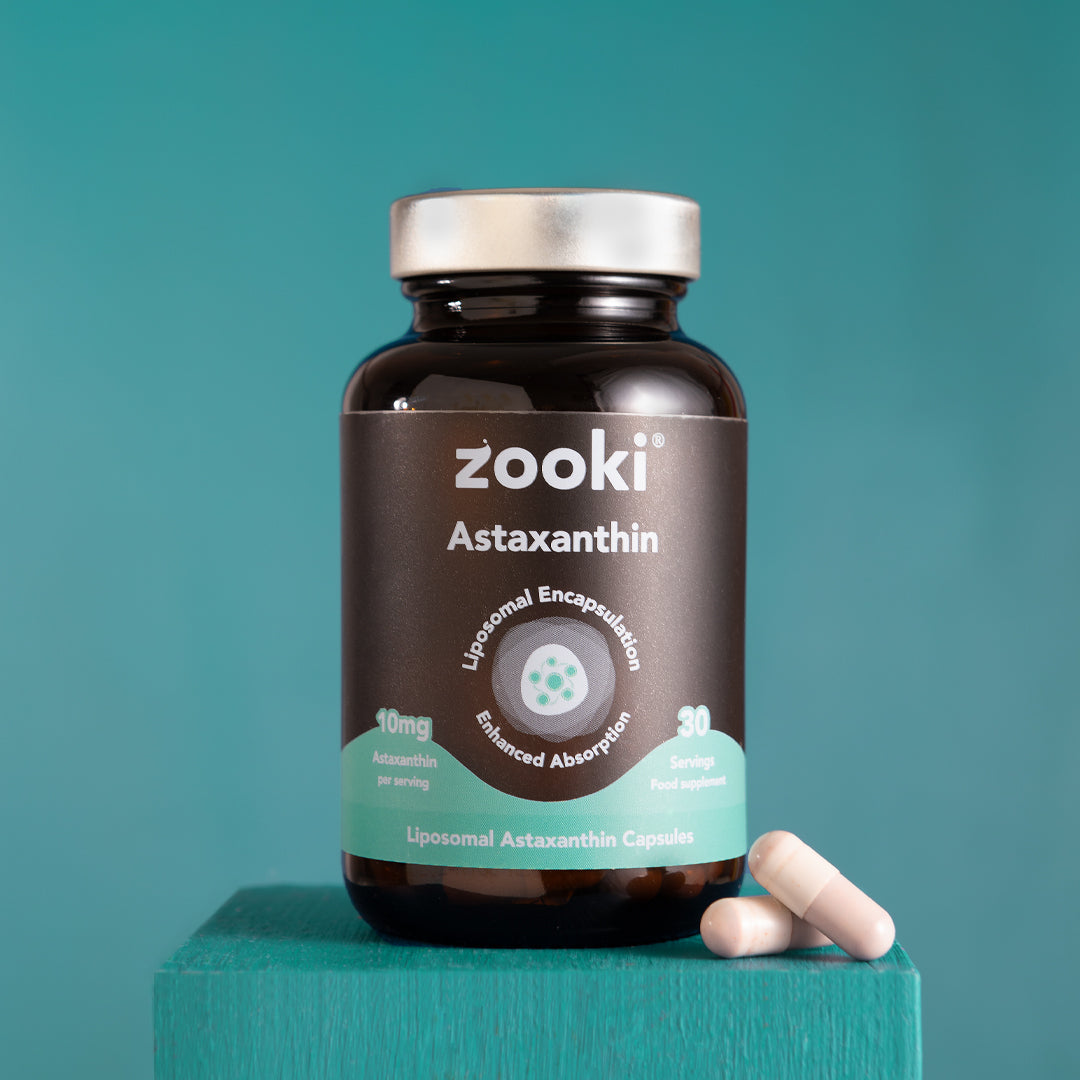
An easy guide to astaxanthin
Ever wondered why flamingoes are pink? Ever asked yourself how algae can use photosynthesis without getting damaged by the sun’s rays? Probably not. But the answer is astaxanthin, a naturally red pigment with unbelievable antioxidant and anti-inflammatory powers.

An easy guide to ashwagandha
We like to say that ashwagandha brings balance. Used for centuries in Ayurvedic medicine, here in the West we’re finally catching on to the physical, mental, stabilising and performance increasing capabilities of this ancient plant. Organic, natural, stress-busting goodness that can make your days and nights just that bit easier and more productive all round.

An easy guide to collagen
Skin. Tendons. Bones. Blood vessels. Gut lining. There isn’t much of the body that doesn’t need collagen. We stop producing it as we age, so supplementation is a must if you want to maintain youthful skin, muscle and support a robust digestive system.
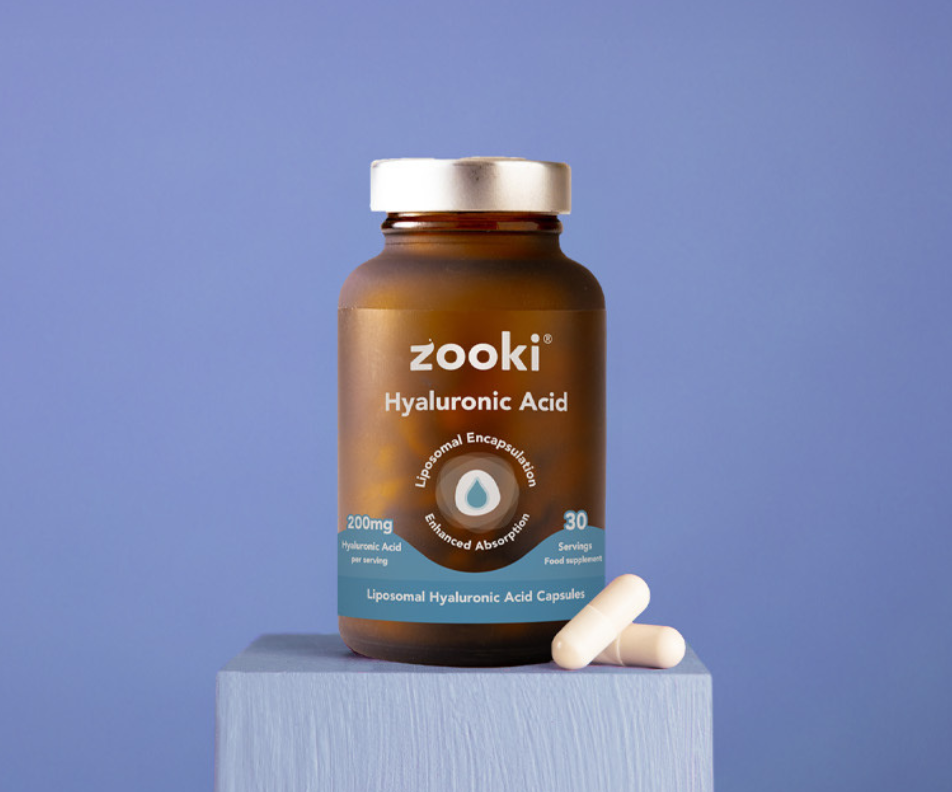
An easy guide to hyaluronic acid
Like the Arnold Schwarzenegger of sponges, Hyalruonic acid can take in and hold over 1,000 times its own weight in water and is the body’s way of providing cushioning for the skin, joints and anywhere where there’s protective fluid.

An easy guide to hydration
Feeling tired? Run down? Not sleeping well? Skin not looking radiant? One factor underlying virtually everything in the body is how hydrated we are. Water is needed for every single biochemical reaction that happens, 24 hours a day.
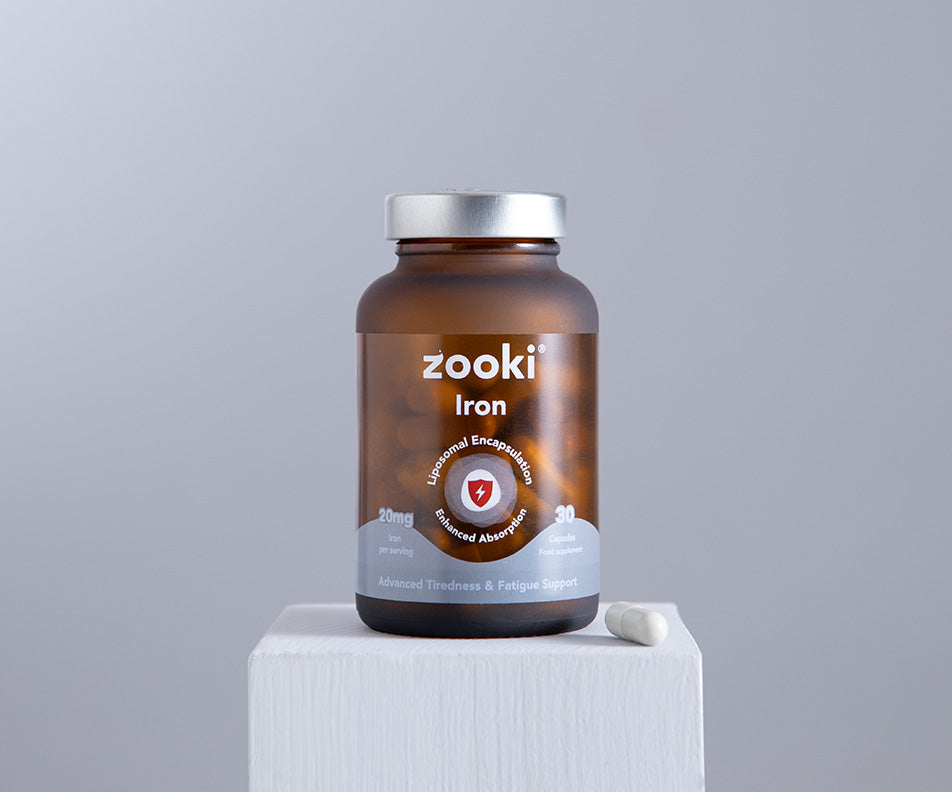
An easy guide to iron
It's an essential mineral and energy-generating giant. Tiredness, fatigue, blood health, strength, immunity, focus and concentration will all benefit from optimal iron levels. But all too often iron supplements come at a price for your digestive health.

An easy guide to lion's mane
Can a mushroom really make you smarter? Yes, if it’s lion’s mane. Prized for millenia in traditional medicinal practices, it’s only recently that we in Europe are beginning to catch up with the myriad of benefits contained in these frankly, surprisingly good looking tree fungi.

An easy guide to magnesium
Never heard of magnesium? It’s the frequently forgotten superstar mineral that activates over 300 biochemical processes around the body every single day. It’s the hard working, multi-tasking cog that keeps a multitude of wheels turning at the same time.
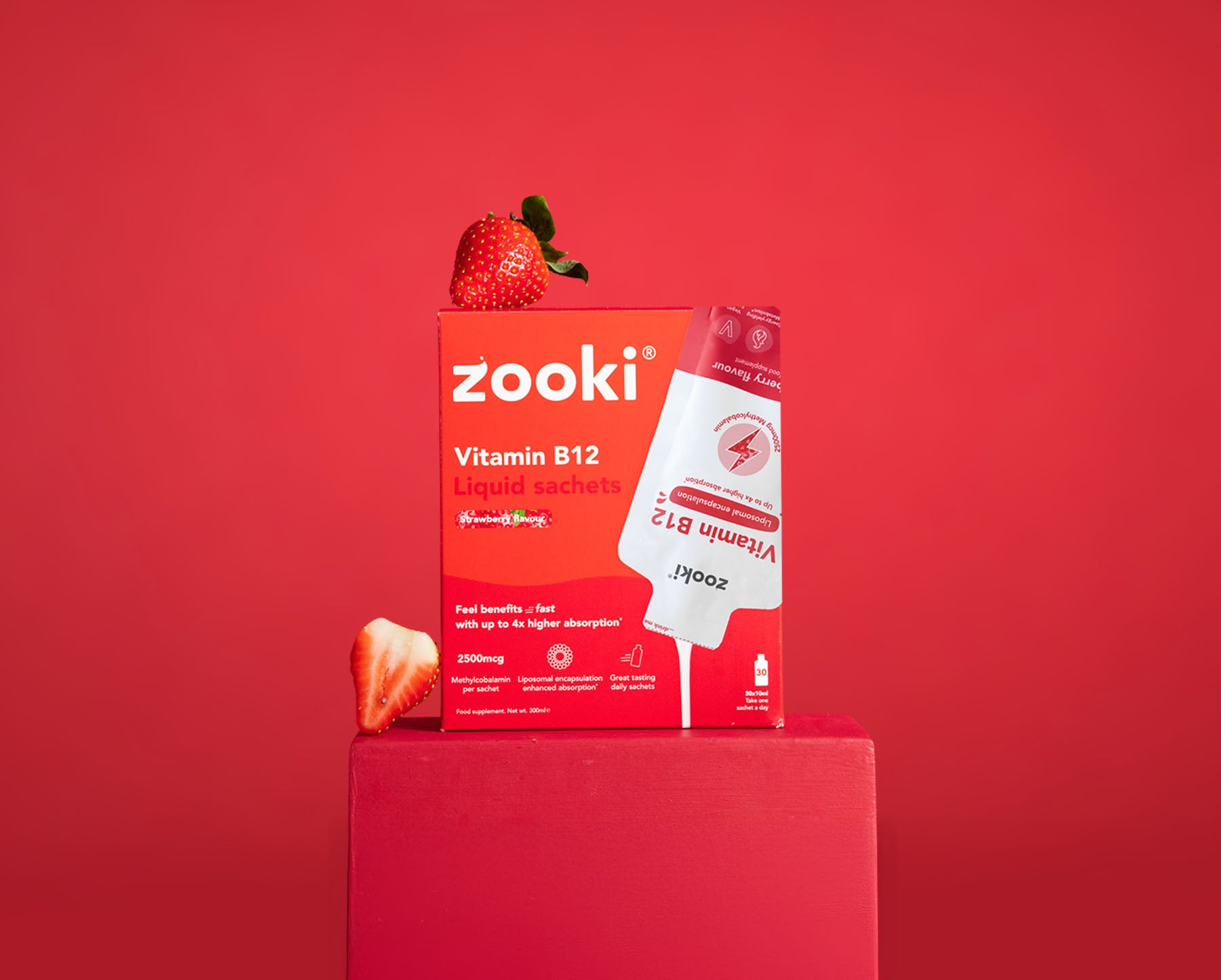
An easy guide to vitamin b12
Small but decidedly mighty; little but markedly fierce; vitamin B12 is frequently overlooked yet could just be the simple boost you need to transform your health and energy levels. It’s essential for nerve production, artery health and even making new red blood cells.
Guides & articles
Creatine for Women: Bulky vs Tones Muscle - What to Expect
Does creatine for women cause bulk? Learn how creatine helps women build toned, strong muscles, not bulky ones. Safe, effective, and results-driven.
Can Creatine for Women Make You Puffy? The Truth About Water Weight
Does creatine for women cause water weight or puffiness? Learn the truth about hydration, tone, and how creatine actually helps you look and feel leaner.
When Do You Actually Feel Creatine Working? Realistic Timeline for Women
Discover how long it takes for creatine to work for women. Learn what to expect in weeks 1, 4, and 12, and how to maximise results naturally.
Creatine vs Protein for Women - Which Builds Lean Muscle Faster?
Learn the difference between creatine and protein for women. Discover which builds lean muscle faster, how they work together, and how to get the best results naturally.
Creatine for Women: Morning or Night? Before or After a Workout?
Should women take creatine in the morning or night? Before or after a workout? Discover when to take creatine for the best results and why consistency matters most.
Do Women Need to Load Creatine? Or Just take It Daily?
Should women load creatine or take it daily? Learn how creatine for women works best, why consistency beats loading, and how to get results safely.
Should Women Take Creatine on Rest Days? Yes - Here's Why
Should women take creatine on rest days? Absolutely. Discover why consistent daily creatine supports recovery, energy, and mental clarity, even when you’re not training.
Creatine for Women: How Much to Take for Toner Results vs Strength Result
How much creatine should women take for tone or strength? Learn the difference between loading and daily dosing and how to get the best results safely.
Creatine vs Collagen - Do Women Need Both?
Discover the difference between creatine and collagen for women. Learn why both are essential for strength, energy, recovery and healthy ageing.
Creatine vs Pre-Workout for Women - Which One Gives Better Energy?
Discover whether creatine or pre-workout gives women better energy. Learn how creatine fuels your muscles and brain for lasting focus and performance.
Creatine for Runners, Yogis & Pilates Lovers - Not just for Lifters
Discover how creatine for women supports energy, recovery, and performance for running, yoga, and Pilates. It’s not just for lifters, it’s for every mover.
Creatine for Busy Women: Can It Help with Burnout & Fatigue?
Feeling drained? Discover how creatine for women helps combat burnout, fatigue, and stress by boosting energy and supporting mental clarity.
Creatine for Women Who Don't Want to Bulk - Just Feel Better
Not a Gym Girl? Here's Why Creatine Still Matters for You
Think creatine is just for gym-goers? Think again. Discover why creatine for women supports energy, focus, and muscle health: with or without a workout.
Why Women Respond to Creatine Differently Than Men (Hormone & Muscle Biology Explained)
Discover why women respond differently to creatine than men. Learn how hormones and muscle biology make creatine especially powerful for women.
What Creatine Does for Women's Brains vs Muscles - A Scientific Breakdown
Discover how creatine supports women’s brains and muscles differently. Learn the science behind energy, focus, and recovery.
ATP, Energy & Muscle Repair - The Science of Creatine for Women Explained Simply
Learn how creatine for women supports ATP, energy, and muscle repair. Discover the science of cellular energy explained simply with expert insights.
Creatine for Women: How It Actually Works Inside Your Cells
Discover how creatine for women supports energy, muscle tone, and brain health at the cellular level. Learn how it powers your cells from within.
Why the nervous system needs Vitamin B12
How much B12 should I take per day?
The Essential Role of Vitamin B12 in Red Blood Cell Production
A Guide to an Anti-Inflammatory Diet
Can Taking Vitamin B12 Lift Someones Mood?




















